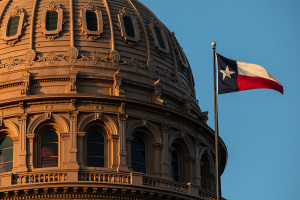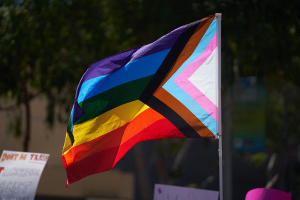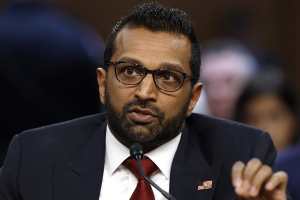'Silent No More' About Abortion Experiences
Womeon who have been there offer to help
Women who have had abortions are talking publicly about the harm and heartache they cause.
The women, young and old, share a willingness to tell and retell their painful personal stories during public events. Their motives are to help women who have had abortions and to save others from making the same mistake they did.
Their efforts are part of the National Silent No More Awareness Campaign. Coordinated by a national referral service for pregnancy-resource centers and by pro-life groups across the country, the interdenominational Christian campaign offers help for women haunted by their abortions.
It also warns women who are considering ending a pregnancy that abortion not only kills a baby, but brings long-term devastation to women, and often to husbands and families.
Forty-two million abortions have been performed since the U.S. Supreme Court legalized the procedure in 1973. An estimated 18 percent of those who have had abortions call themselves evangelical or "born again" Christians, and 31 percent claim to be Roman Catholic, according to figures from Care Net, the network of pregnancy-resource centers.
Telling the truth about one's abortion or abortions in public takes courage and humility.
At a recent Silent No More gathering in Manhattan, women took turns at a microphone on Sixth Avenue between 49th and 50th streets, expressing grief over their abortions. Others held 24-by-30-inch black-and-white placards that read "I regret my abortion."
A crowd of onlookers formed. Some got on their cell phones to express amazement to friends about what was happening. Others approached participants for information.
That scene is being repeated across the country in 46 similar events this year, said Georgette Forney, co-founder of the National Silent No More Awareness Campaign. She is also executive director of NOEL, or the National Organization of Episcopalians for Life.
Abortion clinics tell women that "it was just a blob of tissue," Forney said. "I know better."
Forney, 43, had an abortion when she was 16 and has lived with the regret. She became aware of the "breadth and depth" of pain among American women while counseling post-abortive women by e-mail for three years, she said.
From the girl who had had an abortion the previous day to the 76-year-old grandmother who "knew she had to face the pain before she died," many women are suffering because of their abortions, Forney discovered.
Forney attended a pro-choice candlelight vigil in January 2002, carrying an "I regret my abortion" sign and hoping someone would show her compassion, she said. Instead she encountered sneers and rudeness. "I came to the conclusion that they weren't interested in women, but in abortion," she told religionjournal.com.
In January 2003, she returned to the annual pro-choice rally – this time with 70 women with placards.
Women who speak at the Silent No More gatherings feel deep compassion and empathy for one other, Forney said. Often, "one would break down and others would come and stand and pray with her," she said.
Being so vulnerable in front of a crowd of strangers is difficult but rewarding. "It's very weird. It goes against anything you have in you as far as protective mechanisms. But you really don't want other women to go through the pain you've lived with," she said. "The desire is to protect our sisters and let them know the truth."
About 1,200 women are part of the National Silent No More Awareness Campaign or receive information about it. Some speak at events; some simply hold signs. Others – especially those who have not told their husbands or children about their abortions – attend just to be in the audience, which may be "a huge step" for them, Forney said.
Most of the women in the campaign are Christians.
Expressing regret that may have been buried for decades is hard, Forney said. Ironically, because abortion is a woman's choice, "we don't feel like we're allowed to regret it," she said. "We're stuck with silent suffering."
Burying the truth doesn't keep it hidden forever, Forney said. It can surface in behaviors such as sexual promiscuity, abuse of drugs or alcohol, or trouble having healthy relationships with men.
Other women are physically harmed by abortion. Actress and model Jennifer O'Neill, the national spokesperson for the campaign, had nine miscarriages. She thought God was punishing her, but it turned out that the miscarriages were being caused by physical damage from her abortion, said Janet Morana, co-founder of the National Silent No More Awareness Campaign. She is also associate director of Priests for Life, a Catholic group. O'Neill, an evangelical Christian, later had three healthy children, Morana said.
Women at first may think their abortion was the best thing that ever happened to them, because it seems to solve some immediate problems, Morana said. But in time, many of their lives "spin out of control," she said.
"We are a nation of people and families yearning to be healed because of abortion," Morana said. "Thirty years of abortion has left countless victims. You can't destroy the child without destroying the women."





























